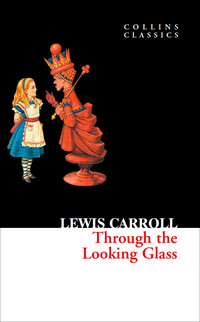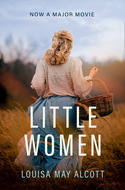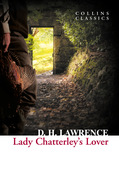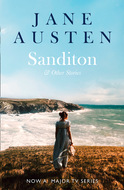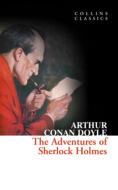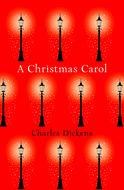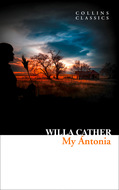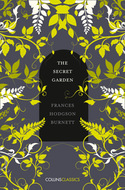Kitap dosya olarak indirilemez ancak uygulamamız üzerinden veya online olarak web sitemizden okunabilir.
Kitabı oku: «Through The Looking Glass»
Collins Classics
History of Collins
In 1819, Millworker William Collins from Glasgow, Scotland, set up a company for printing and publishing pamphlets, sermons, hymn books and prayer books. That company was Collins and was to mark the birth of HarperCollins Publishers as we know it today. The long tradition of Collins dictionary publishing can be traced back to the first dictionary William published in 1824, Greek and English Lexicon. Indeed, from 1840 onwards, he began to produce illustrated dictionaries and even obtained a licence to print and publish the Bible.
Soon after, William published the first Collins novel, Ready Reckoner, however it was the time of the Long Depression, where harvests were poor, prices were high, potato crops had failed and violence was erupting in Europe. As a result, many factories across the country were forced to close down and William chose to retire in 1846, partly due to the hardships he was facing.
Aged 30, William’s son, William II took over the business. A keen humanitarian with a warm heart and a generous spirit, William II was truly ‘Victorian’ in his outlook. He introduced new, up-to-date steam presses and published affordable editions of Shakespeare’s works and Pilgrim’s Progress, making them available to the masses for the first time. A new demand for educational books meant that success came with the publication of travel books, scientific books, encyclopaedias and dictionaries. This demand to be educated led to the later publication of atlases and Collins also held the monopoly on scripture writing at the time.
In the 1860s Collins began to expand and diversify and the idea of ‘books for the millions’ was developed. Affordable editions of classical literature were published and in 1903 Collins introduced 10 titles in their Collins Handy Illustrated Pocket Novels. These proved so popular that a few years later this had increased to an output of 50 volumes, selling nearly half a million in their year of publication. In the same year, The Everyman’s Library was also instituted, with the idea of publishing an affordable library of the most important classical works, biographies, religious and philosophical treatments, plays, poems, travel and adventure. This series eclipsed all competition at the time and the introduction of paperback books in the 1950s helped to open that market and marked a high point in the industry.
HarperCollins is and has always been a champion of the classics and the current Collins Classics series follows in this tradition – publishing classical literature that is affordable and available to all. Beautifully packaged, highly collectible and intended to be reread and enjoyed at every opportunity.
Life & Times
About the Author
The author of Lewis Carroll’s Alice’s Adventures in Wonderland and Through The Looking Glass was in fact a Charles Ludwidge Dodgson (1832—98). He published under the pseudonym Lewis Carroll because he wished to maintain anonymity and so remain relatively immune to any criticism of his poetry and prose. He actually came up with his pen name by translating his first two names into Latin ‘Carolus Lodovicus’ and then Anglicizing them to ‘Lewis Carroll’, a perfect example of his love for the playfulness of language.
Charles Dodgson’s place of birth was a parsonage in the county of Cheshire, England, as his father was an Anglican parson. The family moved to the county of Yorkshire when he was eleven, by which time Queen Victoria had been on the throne for four years.
He and his siblings were home tutored which had an inevitable effect on their ability to socialize. All of the children also suffered from speech stammering. As a result, this self-consciousness was something that pervaded and continued to affect Charles for the rest of his life.
For two years Dodgson attended a school in Richmond, Yorkshire, and then he was sent to Rugby School at the age of fourteen. Like his father, he showed great promise as a mathematician and went on to academic success at Oxford University, even winning a lectureship, which kept him fiscally well off for many years.
Like his father, he decided to enter the church and became an Anglican deacon at Christ Church, Oxford, although his relationship with Christianity was one with which he wrestled. He was, at heart, a liberal thinker, as his literary work would eventually betray.
As well as his stammer, which he referred to as his ‘hesitation’, he was also deaf in one ear and had a weak chest, resulting from childhood ailments. It may well have been these psychological and physical flaws that translated into his drive to succeed as a writer and him becoming a prominent member of society.
Having always written short stories and drawn illustrations, Dodgson began publishing his own magazine in 1855 as a means of creative expression. It was titled the Mischmasch (German for ‘mishmash’) as the magazine was a mishmash of ideas designed for the amusement of his family. Then, in 1856, he had the opportunity to officially publish some work in The Train: A First-Class Magazine, which was a short lived monthly magazine and prompted him to invent his pseudonym Lewis Carroll.
It was at this time that Dodgson became acquainted with a new colleague, Henry Liddell, and his young family. It’s likely that he felt less intimidated by children, and so was probably less self conscious about his stammer. Dodgson grew very fond of Liddell’s son and three daughters and they proved to be the perfect audience for his imaginative stories. It was in this way that he was encouraged to write Alice’s Adventures in Wonderland. The story goes that he orated the first version to Liddell’s three daughters, Lorina, Alice and Edith, whilst on a boat trip and it was Alice Liddell who urged him to commit the adventures to paper. It took him three years to complete the manuscript to his satisfaction and to finally have the book published in 1865. The book quickly caught the collective imagination of Victorian society and became something of a publishing sensation. In fact, it has never been out of print and has been translated into almost every language, such is its universal popularity.
In 1871 Dodgson published a new book about Alice, titled Through the Looking Glass and What Alice Found There. Apparently his inspiration was another conversation with Alice Liddell, where they discussed what it might be like to enter the reflected world in a mirror. Although a sequel to Alice’s Adventures in Wonderland, there are no references to the events of the first book, but the themes, ideas and characters do seem to echo and mirror those of Alice’s Adventures in Wonderland. This second book was every bit as successful as the first.
The Victorian Era
There was a paradox about the Victorian era during which Dodgson lived. On the one hand it was conservative and formalized, but on the other it was progressive and dynamic. In 1859 Charles Darwin had published On the Origin of Species, in which he had revealed his theory of biological evolution by natural selection. It famously caused a great deal of scientific and theological argument, but it also had the effect of allowing people to think more laterally or outside of the box, because it showed that preconceived ideas may no longer be appropriate or correct.
Dodgson was already a creative mind and it was in this revolutionary environment that he allowed his imagination to ferment the fantastical ideas that would evolve into Alice’s Adventures in Wonderland. His fertile imaginings were honed by using the Liddell children as his sounding board, so that he developed an instinct for writing prose that appealed to children and adults alike.
His two books about Alice are now described as literary nonsense as he was the first author to allow himself the creative license to go wherever his mind took him. As a result he produced stories that enter absurd worlds with anthropomorphic animals and other strange characters with exaggerated personality traits. All of the time though, Dodgson uses the scenarios to tackle problems relating to logic, reason and philosophical conundrums, so that there is far more to the books than there would immediately seem.
Queen Victoria herself was a fan of Dodgson’s work, demonstrating that she and many other Victorians were open to the idea of allowing a little nonsense into their lives. It probably came as a welcome counter balance to the weight of austerity that typified the age in other respects.
Dodgson’s work also set a benchmark for new writers. Literary nonsense became a genre in its own right and many subsequent authors have drawn inspiration from Dodgson’s ability to delve into his subconscious, almost as if he were taking psychedelic drugs to conjure a dream-like place, that he called Wonderland. In effect, Dodgson realised that literature is a true art form, just like painting or sculpture, in that so-called rules are there only to be tested and reset in the creative process.
Incidentally it seems likely that Dodgson had indeed tried hallucinogenic drugs. Opium smoking dens existed in Victorian London as it was long before the drug was made illegal. In addition to this, it was known that Psilocybin mushrooms could be consumed to induce mind bending effects. In the book a shrunken Alice meets a caterpillar, smoking a hookah pipe and reclining on a mushroom. Alice consumes morsels of mushroom that make her first shrink even smaller and then grow back to her normal size. Surely drugs had something to do with such ideas.
Themes of the Book
It is perhaps inevitable that people have read between the lines a great deal with Alice’s Adventures in Wonderland and Through The Looking Glass. That is to say, they have searched for a hidden meaning, agenda or allegory that Dodgson wished to express through his work. It seems more likely though that it is what it is – literary nonsense. The books are an exploration of imagined possibilities.
Dodgson doesn’t seem to have harboured any desire to pass comment on Victorian society. Although it is known that many of his literary characters were based on the personalities of his friends, it seems that this was merely an aid to character creation and development rather than any intention to parody them in any way. He was a humanist at heart, so he used his friends because he enjoyed and celebrated their idiosyncrasies and foibles.
It was this encapsulation of the human condition that seems to have made his work so popular, because the characters are in fact familiar stereotypes, so that readers can recognise traits in themselves and in the people they know. What is more, they are ubiquitous traits, so that they exist in people the world over. For example; Alice is the attractively inquisitive and naive girl, the white rabbit is the neurotic clerk, the caterpillar is the laid back artist, and so on.
Visit www.AuthorTracker.com for exclusive information on your favorite HarperCollins author.
Poem
Child of the pure unclouded browAnd dreaming eyes of wonder!Though time be fleet, and I and thouAre half a life asunder,Thy loving smile will surely hailThe love-gift of a fairy-tale.
I have not seen thy sunny face,Nor heard thy silver laughter;No thought of me shall find a placeIn thy young life’s hereafter – Enough that now thou wilt not failTo listen to my fairy-tale.
A tale begun in other days,When summer suns were glowing –A simple chime, that served to timeThe rhythm of our rowing –Whose echoes live in memory yet,Though envious years would say ‘forget.’
Come, hearken then, ere voice of dread,With bitter tidings laden,Shall summon to unwelcome bedA melancholy maiden!We are but older children, dear,Who fret to find our bedtime near.
Without, the frost, the blinding snow,The storm-wind’s moody madness –Within, the firelight’s ruddy glowAnd childhood’s nest of gladness.
The magic words shall hold thee fast:Thou shalt not heed the raving blast.
And though the shadow of a sighMay tremble through the story,For ‘happy summer days’ gone by,And vanish’d summer glory –It shall not touch with breath of baleThe pleasance of our fairy-tale.
AUTHOR’S NOTE
As the chess-problem, given on the next page, has puzzled some of my readers, it may be well to explain that it is correctly worked out, so far as the moves are concerned. The alternation of Red and White is perhaps not so strictly observed as it might be, and the ‘castling’ of the three Queens is merely a way of saying that they entered the palace: but the ‘check’ of the White King at move 6, the capture of the Red Knight at move 7, and the final ‘checkmate’ of the Red King, will be found, by any one who will take the trouble to set the pieces and play the moves as directed, to be strictly in accordance with the laws of the game.
The new words, in the poem ‘Jabberwocky’ (see page 175), have given rise to some differences of opinion as to their pronunciation: so it may be well to give instructions on that point also. Pronounce ‘slithy’ as if it were the two words, ‘sly, the’: make the ‘g’ hard in ‘gyre’ and ‘gimble’: and pronounce ‘rath’ to rhyme with ‘bath.’
Christmas, 1896
Dramatis Personae
(As arranged before commencement of game)

RED

WHITE
White Pawn (Alice) to play, and win in eleven moves

Table of Contents
Cover Page
Title Page
History of Collins
Life & Times
Poem
AUTHOR’S NOTE
CHAPTER 1 Looking-Glass House
CHAPTER 2 The Garden of Live Flowers
CHAPTER 3 Looking-Glass Insects
CHAPTER 4 Tweedledum and Tweedledee
CHAPTER 5 Wool and Water
CHAPTER 6 Humpty Dumpty
CHAPTER 7 The Lion and the Unicorn
CHAPTER 8 ‘It’s My Own Invention’
CHAPTER 9 Queen Alice
CHAPTER 10 Shaking
CHAPTER 11 Waking
CHAPTER 12 Which Dreamed It?
AFTERWORD
CLASSIC LITERATURE: WORDS AND PHRASES adapted from the Collins English Dictionary
Copyright
About the Publisher
CHAPTER 1 Looking-Glass House
One thing was certain, that the white kitten had had nothing to do with it: it was the black kitten’s fault entirely. For the white kitten had been having its face washed by the old cat for the last quarter of an hour (and bearing it pretty well, considering); so you see that it couldn’t have had any hand in the mischief.
The way Dinah washed her children’s faces was this: first she held the poor thing down by its ear with one paw, and then with the other paw she rubbed its face all over, the wrong way, beginning at the nose: and just now, as I said, she was hard at work on the white kitten, which was lying quite still and trying to purr – no doubt feeling that it was all meant for its good.
But the black kitten had been finished with earlier in the afternoon, and so, while Alice was sitting curled up in a corner of the great armchair, half talking to herself and half asleep, the kitten had been having a grand game of romps with the ball of worsted Alice had been trying to wind up, and had been rolling it up and down till it had all come undone again; and there it was, spread over the hearth-rug, all knots and tangles, with the kitten running after its own tail in the middle.
‘Oh, you wicked, wicked little thing!’ cried Alice, catching up the kitten, and giving it a little kiss to make it understand that it was in disgrace. ‘Really, Dinah ought to have taught you better manners! You ought, Dinah, you know you ought!’ she added, looking reproachfully at the old cat, and speaking in as cross a voice as she could manage – and then she scrambled back into the armchair, taking the kitten and the worsted with her, and began winding up the ball again. But she didn’t get on very fast, as she was talking all the time, sometimes to the kitten, and sometimes to herself. Kitty sat very demurely on her knee, pretending to watch the progress of the winding, and now and then putting out one paw and gently touching the ball, as if it would be glad to help if it might.
‘Do you know what tomorrow is, Kitty?’ Alice began. ‘You’d have guessed if you’d been up in the window with me – only Dinah, was making you tidy, so you couldn’t. I was watching the boys getting in sticks for the bonfire – and it wants plenty of sticks, Kitty!
Only it got so cold, and it snowed so, they had to leave off. Never mind, Kitty, we’ll go and see the bonfire tomorrow.’ Here Alice wound two or three turns of the worsted round the kitten’s neck, just to see how it would look: this led to a scramble, in which the ball rolled down upon the floor, and yards and yards of it got unwound again.
‘Do you know, I was so angry, Kitty,’ Alice went on, as soon as they were comfortably settled again, ‘when I saw all the mischief you had been doing, I was very nearly opening the window, and putting you out into the snow! And you’d have deserved it, you little mischievous darling! What have you got to say for yourself? Now don’t interrupt me!’ she went on, holding up one finger. ‘I’m going to tell you all your faults. Number one: you squeaked twice while Dinah was washing your face this morning. Now you can’t deny it, Kitty, I heard you! What’s that you say?’ (pretending that the kitten was speaking.) ‘Her paw went into your eye? Well, that’s your fault, for keeping your eyes open – if you’d shut them tight up, it wouldn’t have happened. Now don’t make any more excuses, but listen! Number two: you pulled Snowdrop away by the tail just as I had put down the saucer of milk before her! What, you were thirsty, were you? How do you know she wasn’t thirsty too? Now for number three: you unwound every bit of the worsted while I wasn’t looking!
‘That’s three faults, Kitty, and you’ve not been punished for any of them yet. You know I’m saving up all your punishments for Wednesday week – Suppose they had saved up all my punishments!’ she went on, talking more to herself than the kitten. ‘What would they do at the end of a year? I should be sent to prison, I suppose, when the day came. Or – let me see – suppose each punishment was to be going without a dinner: then, when the miserable day came, I should have to go without fifty dinners at once! Well, I shouldn’t mind that much! I’d far rather go without them than eat them!
‘Do you hear the snow against the window panes, Kitty? How nice and soft it sounds! Just as if some one was kissing the window all over outside. I wonder if the snow loves the trees and fields, that it kisses them so gently? And then it covers them up snug, you know, with a white quilt; and perhaps it says “Go to sleep, darlings, till the summer comes again.” And when they wake up in the summer, Kitty, they dress themselves all in green, and dance about – whenever the wind blows – oh, that’s very pretty!’ cried Alice, dropping the ball of worsted to clap her hands. ‘And I do so wish it was true! I’m sure the woods look sleepy in the autumn, when the leaves are getting brown.
‘Kitty, can you play chess? Now, don’t smile, my dear, I’m asking it seriously. Because, when we were playing just now, you watched just as if you understood it: and when I said “Check!” you purred! Well, it was a nice check, Kitty, and really I might have won, if it hadn’t been for that nasty Knight, that came wriggling down among my pieces. Kitty, dear, let’s pretend –’ And here I wish I could tell you half the things Alice used to say, beginning with her favourite phrase, ‘Let’s pretend.’ She had had quite a long argument with her sister only the day before – all because Alice had begun with ‘Let’s pretend we’re kings and queens;’ and her sister, who liked being very exact, had argued that they couldn’t, because there were only two of them, and Alice had been reduced at last to say, ‘Well, you can be one of them then, and I’ll be all the rest.’ And once she had really frightened her old nurse by shouting suddenly in her ear, ‘Nurse! Do let’s pretend that I’m a hungry hyena, and you’re a bone!’
But this is taking us away from Alice’s speech to the kitten. ‘Let’s pretend that you’re the Red Queen, Kitty! Do you know, I think, if you sat up and folded your arms, you’d look exactly like her. Now do try, there’s a dear!’ And Alice got the Red Queen off the table, and set it up before the kitten as a model for it to imitate: however, the thing didn’t succeed, principally, Alice said, because the kitten wouldn’t fold its arms properly. So, to punish it, she held it up to the Looking-Glass, that it might see how sulky it was ‘ – and if you’re not good directly,’ she added, ‘I’ll put you through into Looking-Glass House. How would you like that?
‘Now, if you’ll only attend, Kitty, and not talk so much, I’ll tell you all my ideas about Looking-Glass House. First, there’s the room you can see through the glass – that’s just the same as our drawing-room, only the things go the other way. I can see all of it when I get upon a chair – all but the bit just behind the fire-place. Oh! I do so wish I could see that bit! I want so much to know whether they’ve a fire in the winter: you never can tell, you know, unless our fire smokes, and then smoke comes up in that room too – but that may be only pretence, just to make it look as if they had a fire. Well then, the books are something like our books, only the words go the wrong way; I know that, because I’ve held up one of our books to the glass, and then they hold up one in the other room.
‘How would you like to live in Looking-Glass House, Kitty? I wonder if they’d give you milk in there? Perhaps Looking-Glass milk isn’t good to drink – But oh, Kitty! now we come to the passage. You can just see a little peep of the passage in Looking-Glass House, if you leave the door of our drawing-room wide open: and it’s very like our passage as far as you can see, only you know it may be quite different on beyond. Oh, Kitty! how nice it would be if we could only get through into Looking-Glass House! I’m sure it’s got, oh! such beautiful things in it! Let’s pretend there’s a way of getting through into it somehow, Kitty. Let’s pretend the glass has got all soft like gauze, so that we can get through. Why, it’s turning into a sort of mist now, I declare! It’ll be easy enough to get through –’ She was up on the chimney-piece while she said this, though she hardly knew how she had got there. And certainly the glass was beginning to melt away, just like a bright silvery mist.
In another moment Alice was through the glass, and had jumped lightly down into the Looking-Glass room. The very first thing she did was to look whether there was a fire in the fire-place, and she was quite pleased to find that there was a real one, blazing away as brightly as the one she had left behind. ‘So I shall be as warm here as I was in the old room,’ thought Alice: ‘warmer, in fact, because there’ll be no one here to scold me away from the fire. Oh, what fun it’ll be when they see me through the glass in here, and can’t get at me!’
Then she began looking about, and noticed that what could be seen from the old room was quite common and uninteresting, but that all the rest was as different as possible. For instance, the pictures on the wall next the fire seemed to be all alive, and the very clock on the chimney-piece (you know you can only see the back of it in the looking-glass) had got the face of a little old man and grinned at her.
‘They don’t keep this room so tidy as the other,’ Alice thought to herself, as she noticed several of the chessmen down in the hearth among the cinders: but in another moment, with a little ‘Oh!’ of surprise she was down on her hands and knees watching them. The chessmen were walking about two and two!
‘Here are the Red King and the Red Queen,’ Alice said (in a whisper, for fear of frightening them), ‘and there are the White King and the White Queen sitting on the edge of the shovel – and there are two Castles walking arm in arm – I don’t think they can hear me,’ she went on, as she put her head closer down, ‘and I’m nearly sure they can’t see me. I feel somehow as if I was getting invisible –’
Here something began squeaking on the table behind Alice, and made her turn her head just in time to see one of the White Pawns roll over and begin kicking: she watched it with great curiosity to see what would happen next.
‘It is the voice of my child!’ the White Queen cried out, as she rushed past the King, so violently that she knocked him over among the cinders. ‘My precious Lily! My imperial kitten!’ and she began scrambling wildly up the side of the fender.
‘Imperial fiddlestick!’ said the King, rubbing his nose, which had been hurt by the fall. He had a right to be a little annoyed with the Queen, for he was covered with ashes from head to foot.
Alice was very anxious to be of use, and, as the poor little Lily was nearly screaming herself into a fit, she hastily picked up the Queen and set her on the table by the side of her noisy little daughter.
The Queen gasped, and sat down: the rapid journey through the air had quite taken away her breath, and for a minute or two she could do nothing but hug the little Lily in silence. As soon as she had recovered her breath a little, she called out to the White King, who was sitting sulkily among the ashes, ‘Mind the volcano!’
‘What volcano?’ said the King, looking up anxiously into the fire as if he thought that was the most likely place to find one.
‘Blew – me – up,’ panted the Queen, who was still a little out of breath. ‘Mind you come up – the regular way – don’t get blown up!’
Alice watched the White King as he slowly struggled up from bar to bar, till at last she said, ‘Why, you’ll be hours and hours getting to the table, at that rate. I’d far better help you, hadn’t I?’ But the King took no notice of the question: it was quite clear that he could neither hear her nor see her.
So Alice picked him up very gently, and lifted him across more slowly than she had lifted the Queen, that she mightn’t take his breath away: but, before she put him on the table, she thought she might as well dust him a little, he was so covered with ashes.
She said afterwards that she had never seen in all her life such a face as the King made, when he found himself held in the air by an invisible hand, and being dusted: he was far too much astonished to cry out, but his eyes and his mouth went on getting larger and larger, and rounder and rounder, till her hand shook so with laughing that she nearly let him drop upon the floor.
‘Oh! please don’t make such faces, my dear!’ she cried out, quite forgetting that the King couldn’t hear her. ‘You make me laugh so that I can hardly hold you! And don’t keep your mouth so wide open! All the ashes will get into it – there, now I think you’re tidy enough!’ she added, as she smoothed his hair, and set him upon the table near the Queen.
The King immediately fell flat on his back, and lay perfectly still: and Alice was a little alarmed at what she had done, and went round the room to see if she could find any water to throw over him. However, she could find nothing but a bottle of ink, and when she got back with it she found he had recovered, and he and the Queen were talking together in a frightened whisper – so low that Alice could hardly hear what they said.
The King was saying, ‘I assure you, my dear, I turned cold to the very ends of my whiskers!’
To which the Queen replied, ‘You haven’t got any whiskers.’
‘The horror of that moment,’ the King went on, ‘I shall never, never forget!’
‘You will, though,’ the Queen said, ‘if you don’t make a memorandum of it.’
Alice looked on with great interest as the King took an enormous memorandum-book out of his pocket and began writing. A sudden thought struck her, and she took hold of the end of the pencil, which came some way over his shoulder, and began writing for him.
The poor King looked puzzled and unhappy, and struggled with the pencil for some time without saying anything; but Alice was too strong for him, and at last he panted out, ‘My dear! I really must get a thinner pencil. I can’t manage this one a bit; it writes all manner of things that I don’t intend –’
‘What manner of things?’ said the Queen, looking over the book (in which Alice had put The White Knight is sliding down the poker. He balances very badly). That’s not a memorandum of your feelings!’
There was a book lying near Alice on the table, and while she sat watching the White King (for she was still a little anxious about him, and had the ink all ready to throw over him, in case he fainted again), she turned over the leaves, to find some part that she could read, – ‘for it’s all in some language I don’t know,’ she said to herself.
It was like this:

She puzzled over this for some time, but at last a bright thought struck her. ‘Why, it’s a Looking-Glass book, of course! And if I hold it up to a glass, the words will all go the right way again.’
This was the poem that Alice read:
JABBERWOCKY
‘Twas brillig, and the slithy tovesDid gyre and gimble in the wabe;All mimsy were the borogoves,And the mome raths outgrabe.
Ücretsiz ön izlemeyi tamamladınız.
